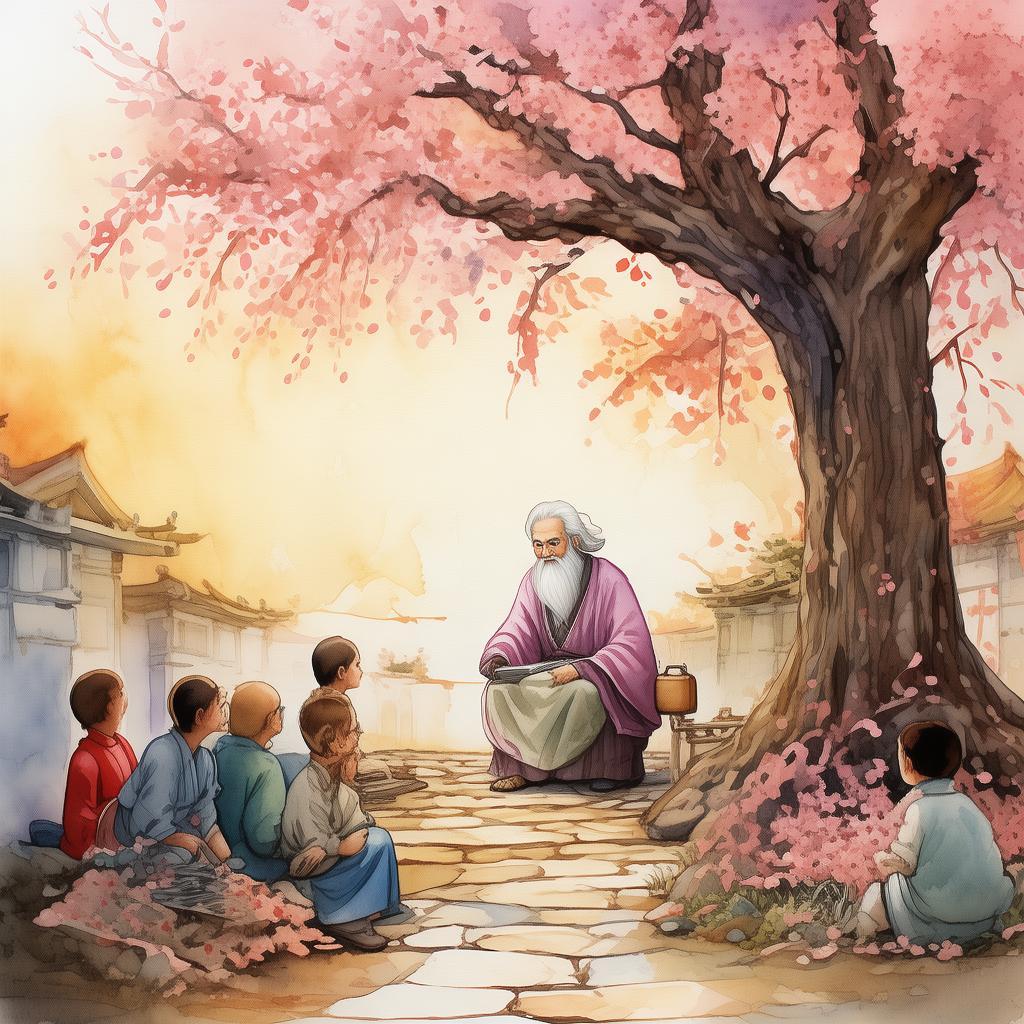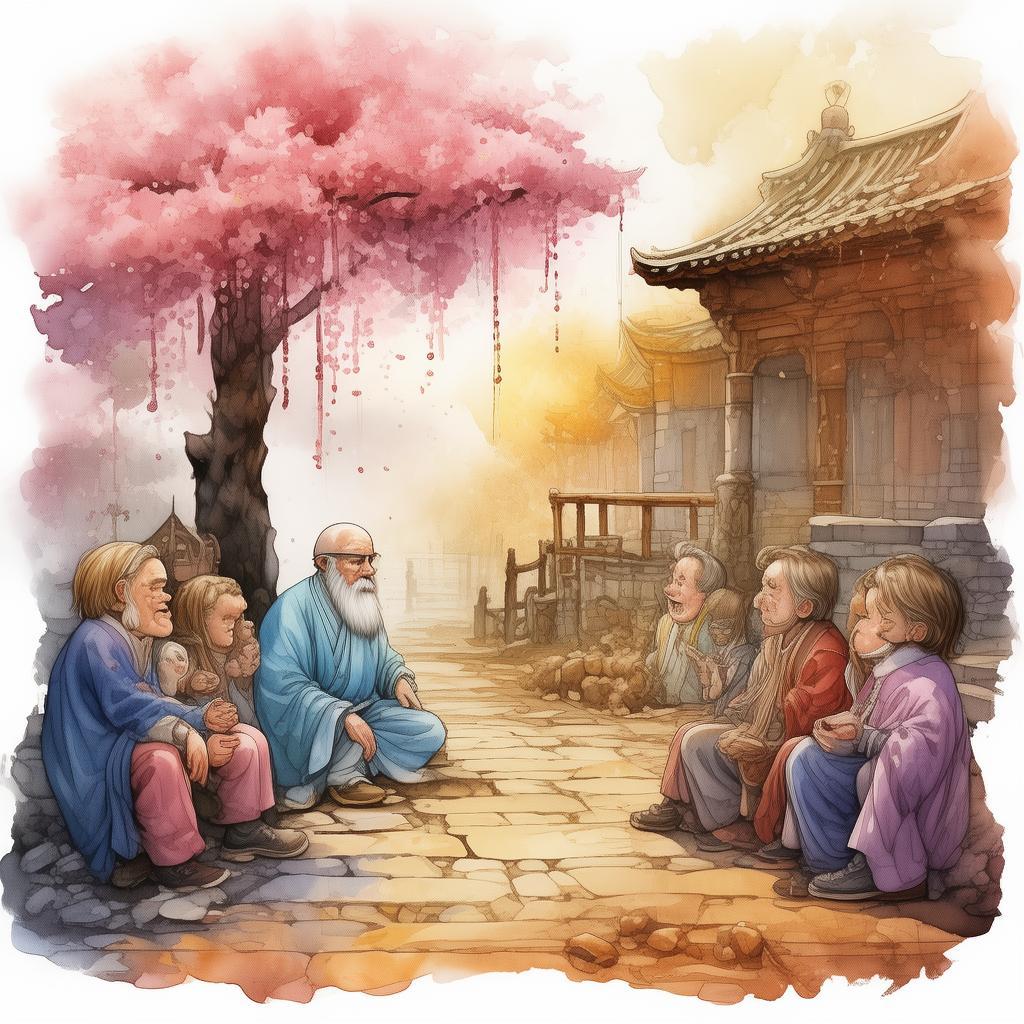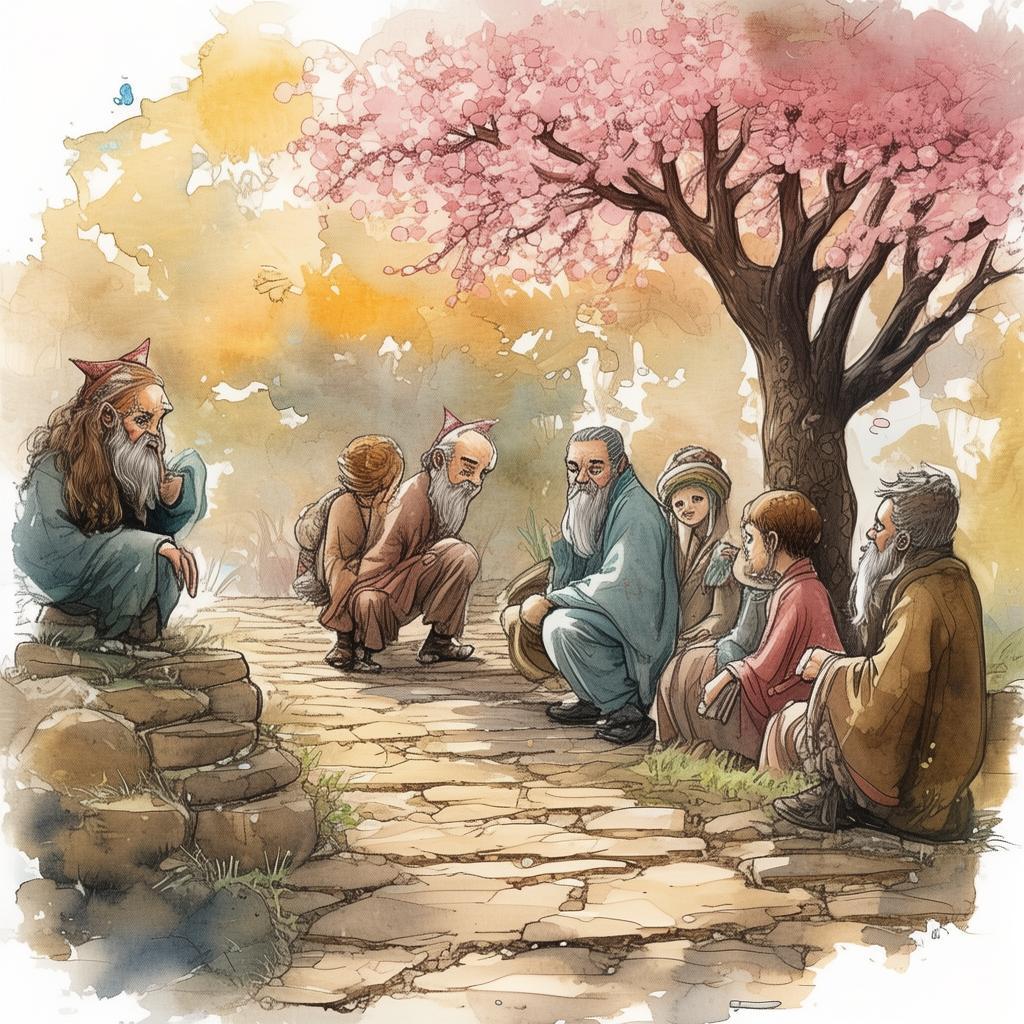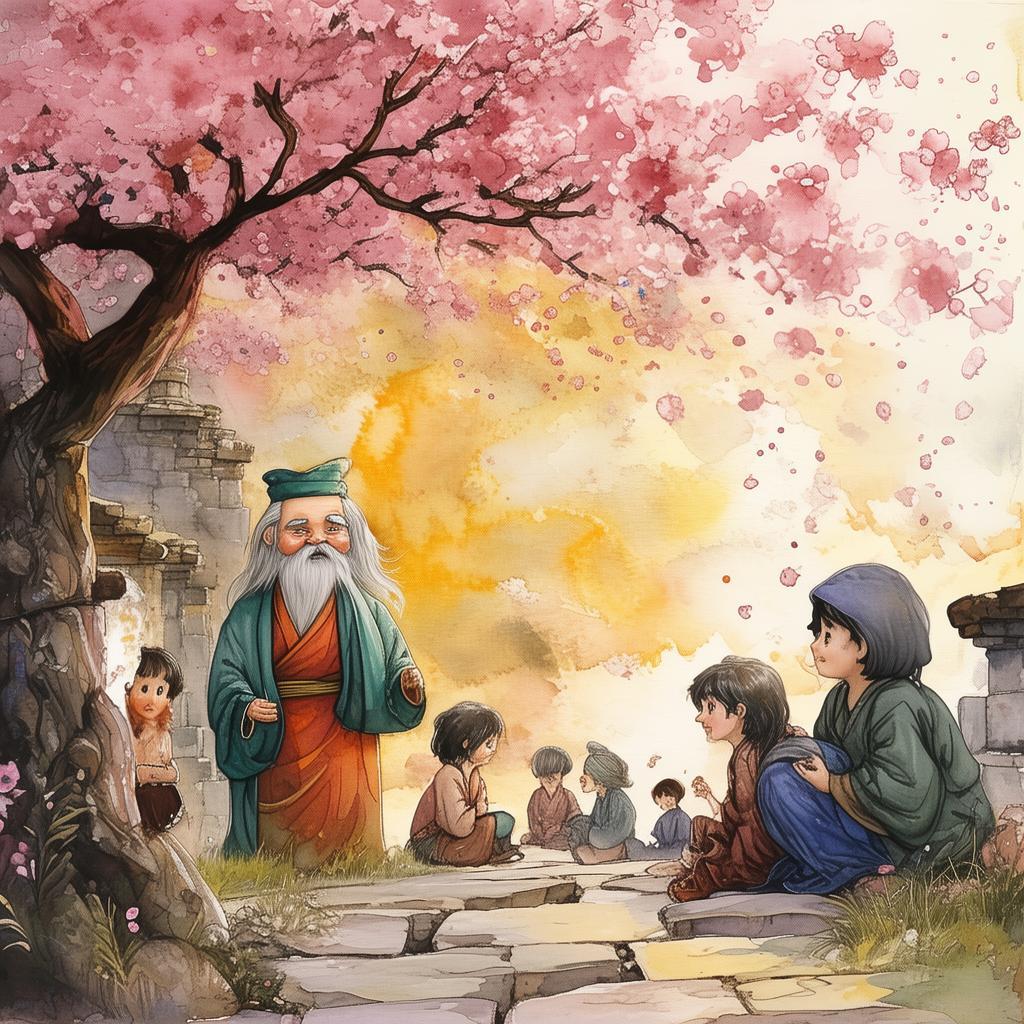Twisted Fate of the Tempting Gourmet: The Tantalus's Dilemma
In the heart of ancient Greece, where the gods and mortals mingled, there lived a man named Tantalus, the king of Sipylos. Renowned for his culinary prowess, Tantalus was said to have a taste for the extraordinary, a palate that could discern the subtlest flavors of the gods themselves. Yet, his desire for the divine was matched only by his mischievous nature, a combination that would lead to his undoing.
The gods, weary of Tantalus's audacity, decided to teach him a lesson. They presented him with a feast of the most sumptuous delicacies, the likes of which he had never seen. Yet, as he savored each morsel, he noticed something peculiar. The food, while divine in taste, seemed to lack the essence of life, the very spark that made it divine.
Tantalus's curiosity got the better of him. He decided to uncover the secret behind this food, reasoning that if he could understand the divine essence, he could elevate his own culinary skills to the level of the gods. Little did he know, this decision would set in motion a chain of events that would lead to his eternal punishment.
As he delved deeper into the mystery, Tantalus discovered that the food was enchanted, its essence tied to the life force of the gods. The gods, seeing through his intentions, cursed him, ensuring that he would forever be tormented by the sight of food that he could never have.
Tantalus was placed in a field, surrounded by a fruit-laden tree, a spring of water, and a table laden with the finest foods. Yet, the moment he reached for the fruit, it would slip from his grasp, and the water would recede from his lips before he could take a sip. The table of food was always just out of reach, taunting him with its aroma and taste.

This became Tantalus's eternal fate, a reminder of the dangers of overreaching and the consequences of tempting the gods. But there was more to this tale than mere punishment. Tantalus's mischievous nature had not entirely diminished. Even in his eternal punishment, he found a way to indulge his love for gourmet food.
One day, as he stood in his eternal field, Tantalus noticed a small, delicate insect perched on a blade of grass. He reached out to swat it away, but as his hand moved, he paused. The insect was not just any insect; it was a creature of the gods, its presence a rare and wondrous sight. Tantalus, with his love for the extraordinary, could not resist the temptation.
With a mischievous grin, Tantalus reached out and captured the insect. He held it in his hand, marveling at its beauty and rarity. But as he did, he felt a chill run down his spine. The gods, once again, had noticed his actions.
A figure appeared before him, the god Hermes, the messenger of the gods. "Tantalus," he said with a stern voice, "you have again crossed the line. This creature is sacred, and you are forbidden from touching it."
Tantalus, realizing the gravity of his mistake, dropped the insect immediately. The creature fluttered away, and the gods, satisfied with his repentance, allowed the insect to live.
The incident served as a stark reminder to Tantalus of the thin line between temptation and ruin. He realized that his love for gourmet food was not just a taste for the extraordinary; it was a reflection of his mischievous nature, a nature that had brought him both joy and pain.
From that day on, Tantalus lived in his eternal field, his punishment a constant reminder of the dangers of temptation. But he also learned to appreciate the beauty of life in its simplest form, the joy of the everyday, and the value of humility.
As the centuries passed, the tale of Tantalus spread far and wide, a cautionary story that would come to embody the Chinese idiom “Temptation leads to ruin.” It was a story that taught that the pursuit of the extraordinary, while thrilling, could lead to eternal punishment if not approached with wisdom and respect.
And so, Tantalus's tale continued, a reminder to all who would listen that the pursuit of knowledge and the desire for greatness must be tempered with caution and humility. For in the end, it was not the gods who punished Tantalus, but his own mischievous nature and his inability to resist the temptation that he so dearly loved.
✨ Original Statement ✨
All articles published on this website (including but not limited to text, images, videos, and other content) are original or authorized for reposting and are protected by relevant laws. Without the explicit written permission of this website, no individual or organization may copy, modify, repost, or use the content for commercial purposes.
If you need to quote or cooperate, please contact this site for authorization. We reserve the right to pursue legal responsibility for any unauthorized use.
Hereby declared.









